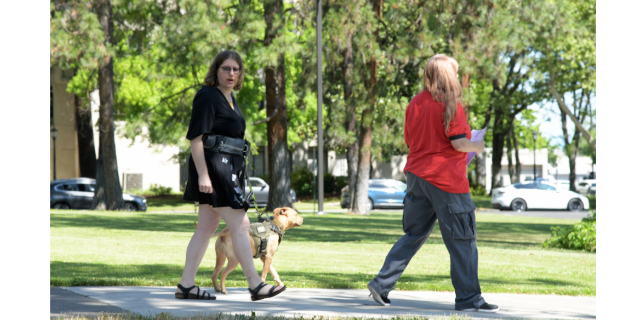THINKING OUT LOUD: New preposition age just doesn’t sit well
Published 5:00 am Friday, March 8, 2024

- Galvin crop
We don’t talk much about the actual practice of writing in this space, primarily because I was instructed from the time I was a protoscribe slithering from the primordial ooze to only write on those topics which you know about …
… write about something of which you know …
… write what you know.
And, by “you,” I mean me — although, I suppose, that applies to you, meaning “you,” as well.
But look what I did just then. I made up a word for the heck of it. I split an infinitive. I might have screwed up (once more) the “that/which” conundrum. I started a sentence with “And” … and another one with “But.”
Mrs. Robichaud, who taught me in fifth grade more about putting words together than instructors before or since, is likely sharpening her red pencil in the afterlife.
Keen-eyed readers still in corporeal form, meanwhile, would add to my faux pas parade the ending of a sentence with a preposition.
Those same readers, however, likely aren’t in the employ of Merriam-Webster — the dictionary publishers who last month rocked the world of grammarians and internet know-it-alls by siding with the ever-morphing sarcastic response (popularly, if not accurately, attributed to Winston Churchill) that “this is the type of arrant pedantry up with which I will not put.”
Merriam-Webster basically said that this tempest in a teapot can be attributed to generations of persnickety prescriptivists, when in reality it was much ado about nothing.
“It is permissible in English for a preposition to be what you end a sentence with,” the publishers snarked in February on that go-to source for semantic integrity … Instagram.
They could have let the burgeoning kerfuffle deflate, and suffer the slings and arrows of Mrs. Robichauds everywhere, but on their website the dictionary’s editors twist the knife a tad deeper.
“The people who claim that a terminal preposition is wrong are clinging to an idea born in the 17th century,” they state, “largely abandoned by grammar and usage experts in the early 20th.”
Irregardless of prepositional irregularity, it should be reiterated once more that — simply because Merriam and/or Webster give their official okee-dokee to get away with low-brow linguistics — this doesn’t mean it is something up with which we now will put.
We (meaning you and me or, I suppose, I) spend considerable time trying to follow the dictum of the late poet and essayist Stephen Dobyns, who decreed that writing comes down to placing the best words in their best order.
That implies (and/or infers), among other things, that heed should not be paid to those who purposely employ “irregardless” or “reiterated” just to see whether their readers are still awake.
Years ago, I was forced to separate squabbling copy editors who were burnishing their rhetorical resumes over whether the use(age) of a hyphen in some-such sentence, about which no one beyond their cubicle walls would give a whit.
The hyphenated hullabaloo stemmed from each relying on a different edition of — you guessed it — a Merriam-Webster dictionary, which had changed its mind over this matter and thus was responsible for the sound and fury signifying the ongoing nothingness.
The persnickety prescriptivist with the up-to-date version claimed its recency validated his stance.
His equally obtuse opponent claimed that his was the “official” dictionary of the newspaper — whereupon he claimed victory, mic-dropped the tome, and left the room.
“Why,” his vanquished foe asked, “don’t we all have copies of the official dictionary?”
I paused, contemplating several “Why?” questions of my own — particularly, “Why me?” — before explaining the situation.
“Because,” I said, “we don’t have an ‘official’ dictionary.”
“Then why …”
“… because he wanted you to shut up.”
I realize what telling this tale makes me, but that was the moment I learned it was indeed possible that I simultaneously could and couldn’t care less about ending a sentence with a preposition.






